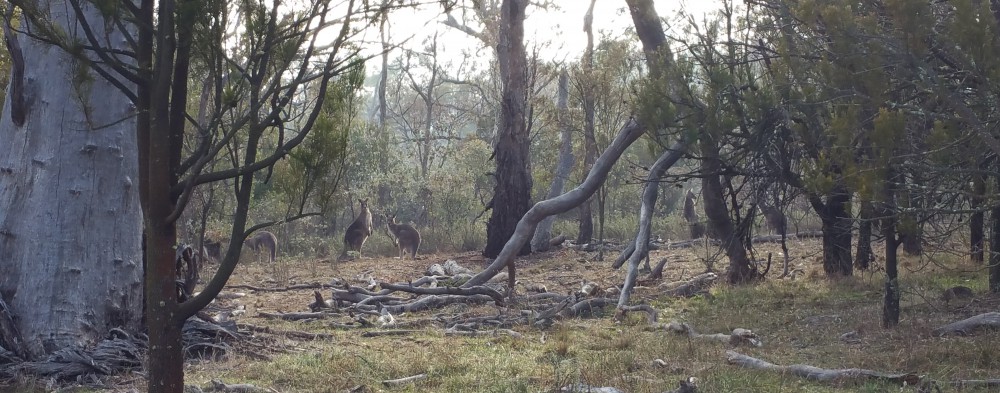Disclaimer: This is a guest blog post by Sophien Kamoun, a highly respected group leader in Plant Biology at The Sainsbury Laboratory, Norwich. We decided to publish his post as a valuable contribution to the debate on ‘open science’. However the represented opinion does not necessarily reflect our both/both opinions.
I’m a proponent of open science. Science is continuously in flux. Our knowledge, theories and concepts are continuously evolving. The essence of science is to capture new information, integrate it into current models and regurgitate more elaborate concepts. Therefore science cannot thrive without a vibrant culture of discussion and debate. Open science widens the net. Anyone can access the data and comment on it. A tweet by someone you don’t know could lead you to think differently about your science and help you to develop new concepts. We move from elitist old boy clubs to an open door party. This is healthy for science.
As a native of Tunisia open science matches well with my personality. I grew up in the typical Mediterranean culture of vibrant discussion, constant arguing and yes the occasional bickering. These traits are embedded in me. I know they can be irritating to others. But I believe they did help me develop into an engaged citizen and scientist. A paucity of critical thinking and engagement among the citizen of modern and, presumably, well-educated societies is one of the drama of our age.
It is therefore natural for me to support all efforts of post-publication review. Platforms such as PubPeer aim at extending the discussion and analysis beyond publication in peer-reviewed literature. They are perfect for this era of journal proliferation and internet communication. They also address flaws in pre-publication peer-review that have been well documented.
But PubPeer has evolved, most certainly against the wishes of its anonymous founders, into a modern day “witch hunt” platform. Many comments seem valid. But pointless and frivolous comments are being posted, and have certainly increased in frequency in recent weeks (at least in plant biology). How to address this? How to buffer or eliminate such posts while maintaining the original goal of PubPeer as a vibrant journal club platform? My suggestions are two-fold.
First, PubPeer should encourage and promote the posting of positive reviews. Peer review is not about “Gotcha! I found a flaw!” It is primarily to endorse excellent science. It does shock me that the great majority of the posts I read only list negative comments. This is not what peer review or journal clubs are about. More often than not, we find positives in the literature we read and discuss. There is plenty of great science out there. Why shouldn’t we acknowledge it and promote it? Why are posters rushing to reveal “vertical lines” in a blot but failing to highlight a flawless figure? PubPeer and related platforms have a role to play here. They could help build the confidence and reputation of young scientists, strengthen their CVs – further shifting the obsession with impact factors and publishing in glam magazines to a focus on the quality of an individual’s work.
Second, PubPeer may consider recruiting an Editorial Board to help moderate the questionable posts. I expect many reputable scientists, junior and senior, to be willing to volunteer just as we do for scientific journals. An Editorial Board that reflects diversity in gender, geography, career stage, and research topic would improve transparency and credibility. It will also serve to temper criticism and cynicism about PubPeer that is prevalent among many in the scientific community.
The reality is that post-publication peer review is here to stay. The recent episode that my colleagues and I faced was a timely teaching moment. It reminded us of the importance of record keeping, archiving old data, ensuring that pictures integrate visible labels and so on. Several members of my lab told me that this sorry episode has prompted them to document and store their data more rigorously. Nobody wants to find out 10 years later that they cannot respond to an allegation about their paper. Mistakes do happen so we should be prepared to respond and revise.
At my host institution, The Sainsbury Lab, which is currently led by Head of Lab Cyril Zipfel, recent episodes have further justified the misconduct training initiatives that were already undertaken way before the current brouhaha. We need to raise awareness of these important issues. Scrutiny and discussion of the science post-publication should become part of the culture. A shift to a new reward culture is happening. It’s not only where you published but also what you published. Quality indicators other than the journal impact factor are becoming recognized. It’s you, the next generation of scientific leaders, who can ensure that the cultural shift takes hold. And PubPeer and other post-publication peer review platforms have a role to play in this new reward culture.
/// See also our first guest post of today by anonymous Unregistered Submission about the same issue. ///

Pingback: Don’t judge too fast! | lushgreengrassatafridayafternoon
An updated version of this blog post is now posted on Pubpeer and can be found here -> https://pubpeer.com/topics/1/877A42B12A198A44306771E0D80AB8#fb22620
Pingback: be critical: a response to sophien kamoun | you're underthinking it!
Nicely put as always Sophien, thank you. I agree, an editorial feature would make the pubpeer process more helpful & less vindictive. Thanks for this clear perspective